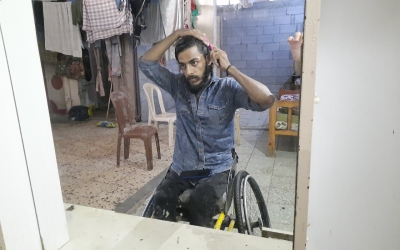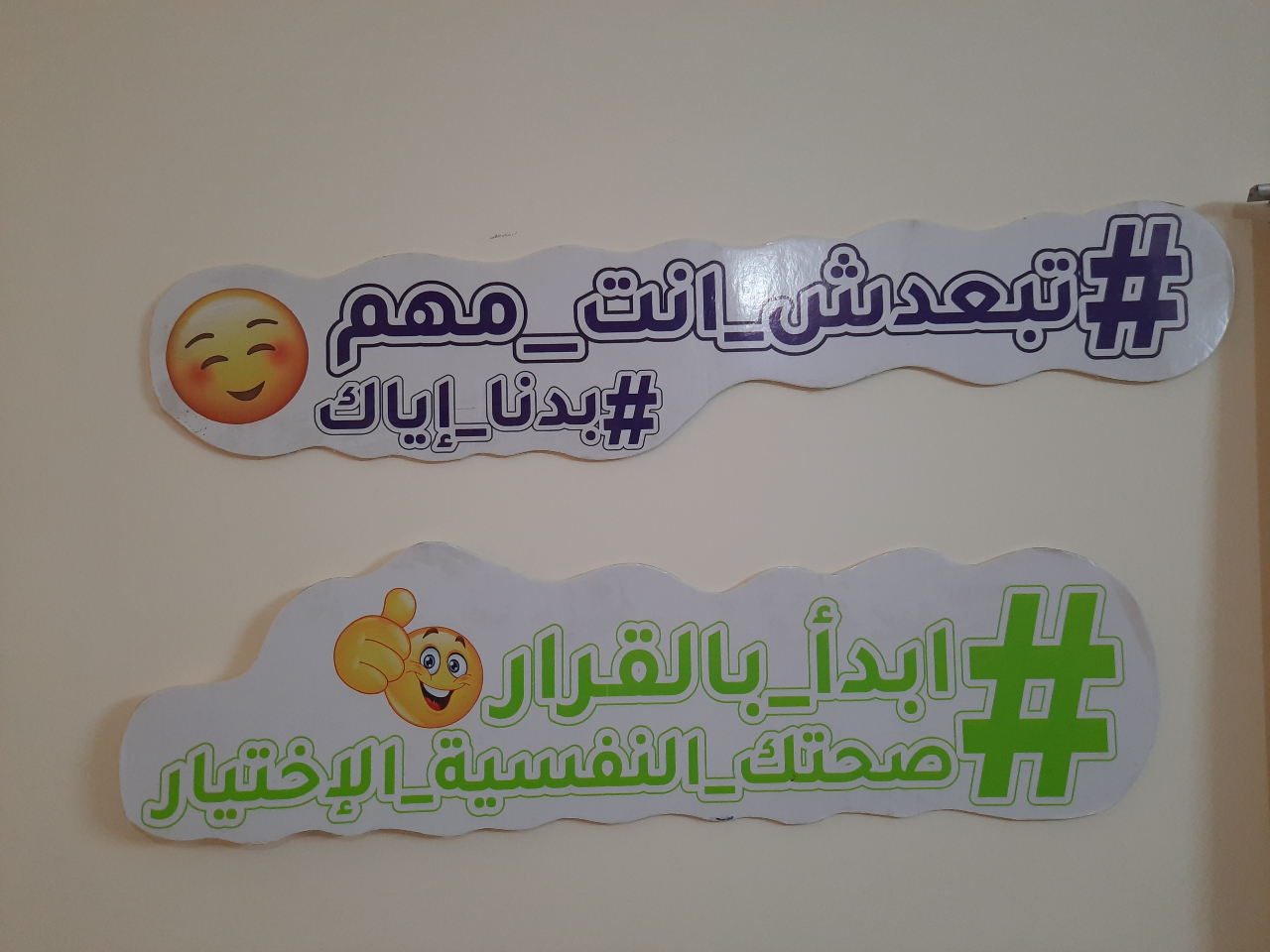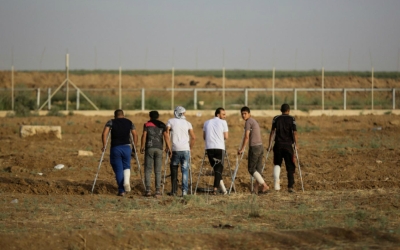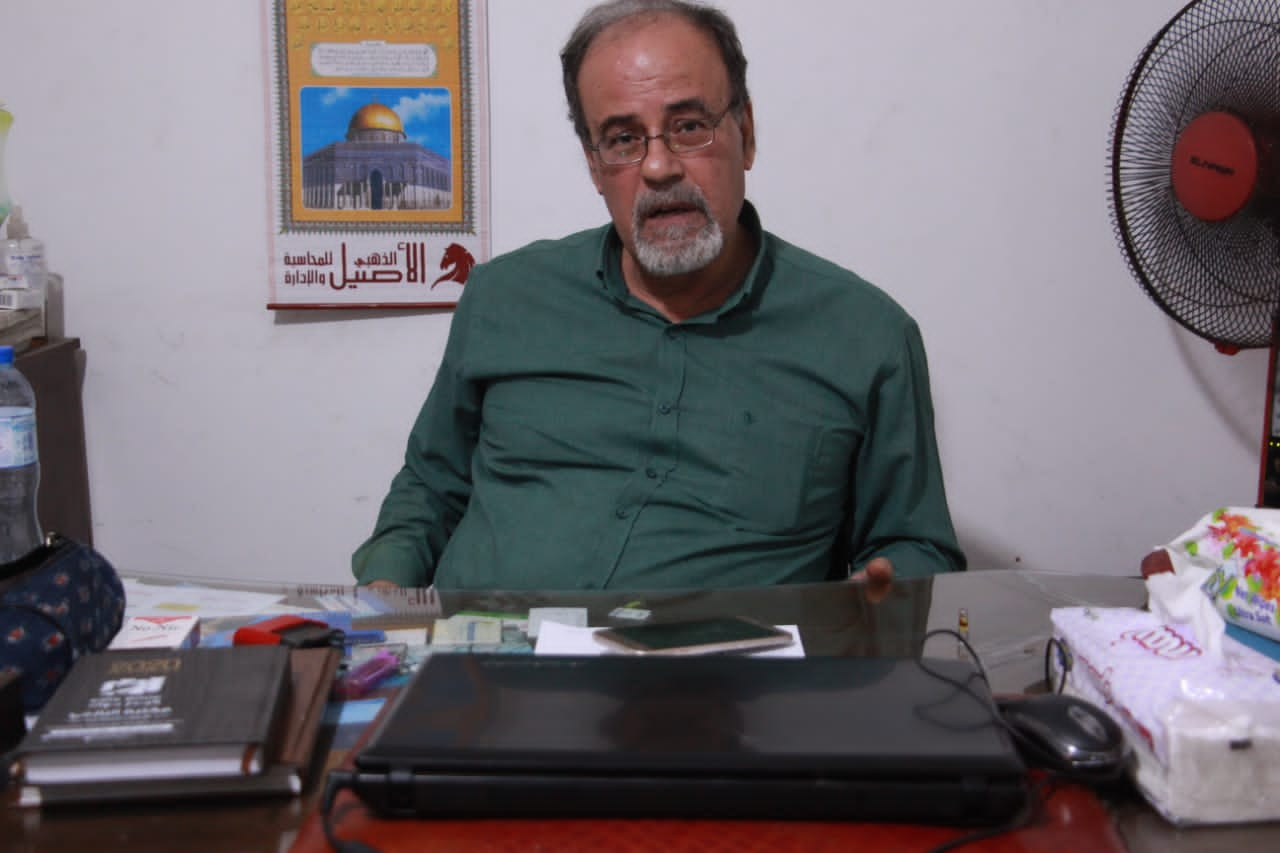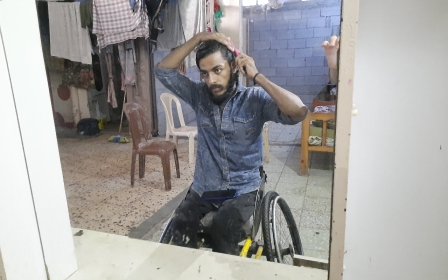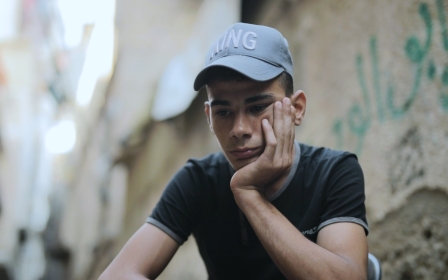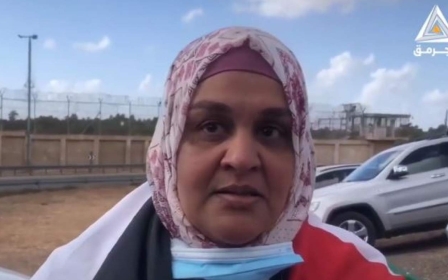Gaza: 'Collective shock' of traumatic events sees mental health cases soar
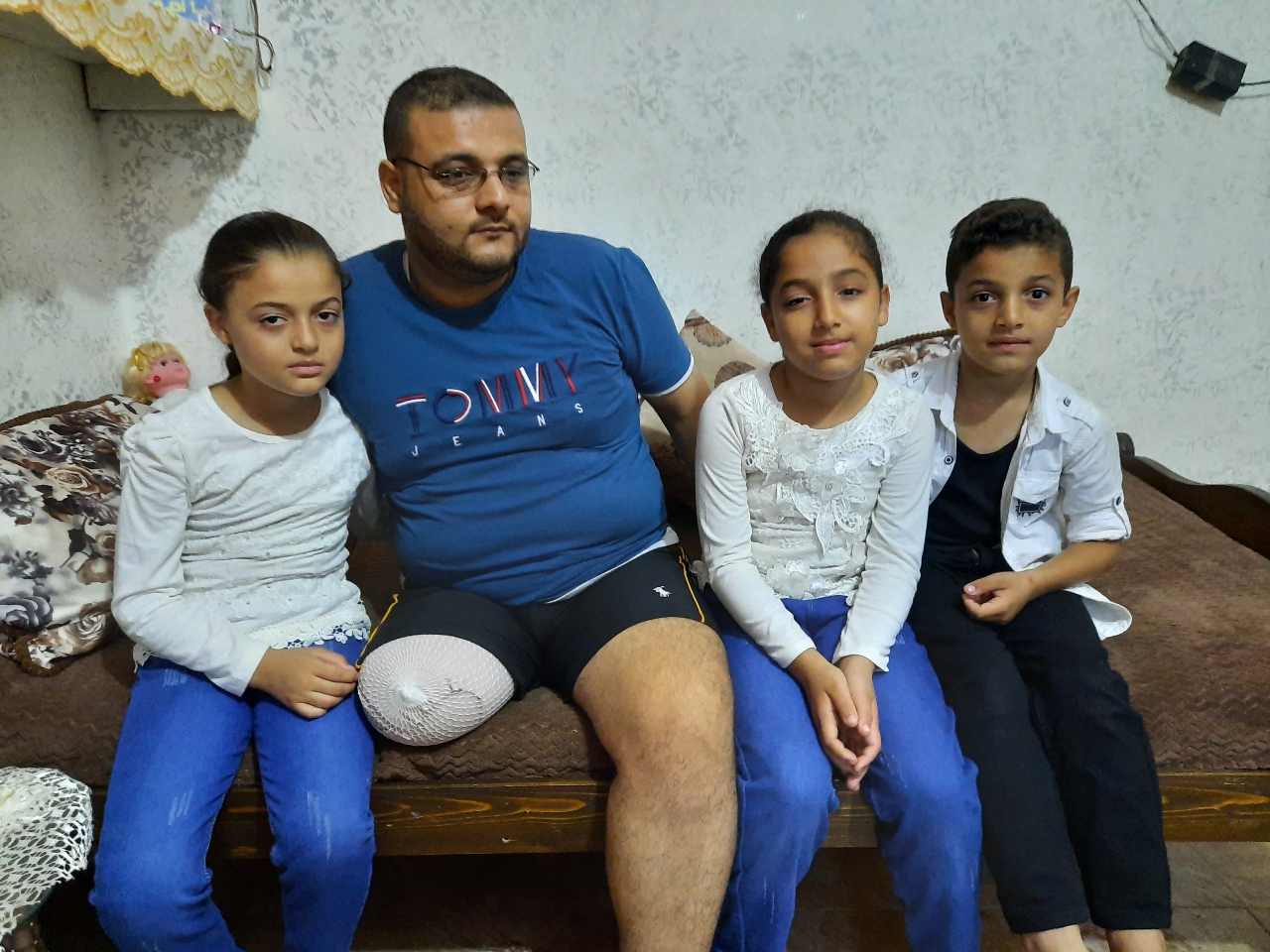
Orfan Shaimaa* is getting ready to attend her 15th psychological support session at Friends for Mental Health (FFMH), a non-governmental organisation operating in the Gaza Strip.
While making her way to the session, she carefully looks around every now and then to make sure no-one recognises her in order to avoid the stigma from which mental health patients often suffer in the besieged enclave.
The 20-year-old traces her psychological trauma to the second day of Israel's May offensive against Gaza this year, which killed 253 Palestinians, including 66 children, 39 women, and 17 elderly people, while almost 2,000 were injured.
"On 12 May, we did not have even a shekel, so my father, Wael, had to go to the farm where he has worked for years to pick some vegetables to sell and bring bread and some food," Shaimaa told Middle East Eye as she sat in the room where she attends her psychological sessions.
"He left our home at 8am to go to the farm in Beit Lahiya, in the north of the [Gaza] Strip.
"After two hours, he called my mother and asked her if she wanted him to bring anything before he came back," she said, her eyes full of tears, adding that “the way takes around 10 minutes".
"But an hour-and-a-half passed, and he did not come. We called him many times, but we could not reach him as his phone was surprisingly off,” she said.
'His face was deformed'
As always when she is in the kitchen, Shaimaa's mother was listening to the radio that day.
Suddenly the presenter said that four farmers had been targeted in Beit Lahiya and that their bodies had arrived at the Indonesian Hospital in the north of the Gaza Strip.
"While my mother was telling us the news and asking us to call any of my father's colleagues, her phone rang," said Shaimaa.
"After answering it, she fainted. Then, when my eight brothers and sisters and I were waking her up, we heard my cousin crying loudly and saying 'my uncle Wael has been martyred'.
"We instantly froze. 'What! What did you say?' I asked him. Suddenly all my uncles and cousins who live in the same building came to our home."
After about an hour, Shaimaa's family heard loud noises as mourners pushed each other to look at Wael's body, which had arrived in an ambulance in front of their house.
"They did not allow us to look at him because his face was deformed due to his injuries. Once I saw the ambulance, I fainted for several hours.
"After the war passed, I didn't leave my home. As a result, I started suffering from panic attacks, severe anxiety, and depression."
Lucky break
Following her father's death, a local organisation, Alsabil Welfare House, contacted Shaimaa's family to give them food and financial assistance.
Shaimaa's family had to submit some documents to the organisation, so she decided to break her isolation at home and visit them.
By chance, FFMH was located on the floor below Alsabil Welfare House.
"Without hesitation, I entered the office. Luckily, I met with a psychologist called Dalia and told her my story," said Shaimaa.
"She gave me the first session and asked me to come again. After three sessions, I was diagnosed with post-traumatic stress disorder [PTSD]. Now I am a little bit better."
Absence of hope
Earlier this month, Dr Samah Jabr, director of Gaza's Department of Mental Health, said that one-third of Gazans are in need of psychological help.
Yahia Khader, a former director-general of the department, told MEE that Israel's May offensive, along with the ongoing blockade of the Strip which began in 2007, have had severe social and economic consequences for its people.
An absence of any hope for Gaza's youth, poverty, the inability to travel, the coronavirus, and a poorly equipped health system have all added to the toll on mental health in Gaza, said Khader.
Shaimaa's 10-member family is just one of tens of thousands of families in the enclave who live under the poverty line.
Her father's salary of just 800 shekels ($248) a month meant that, after finishing secondary school, she was unable to go to university as her father could not afford the fees.
'My injury has opened the door of hell'
Mohammed al-Asdoudi, 35, sits on his bed smoking heavily, ignoring his doctor's advice to give up the habit.
He lives in the al-Shuja'iya neighbourhood, in the east of Gaza Strip, where Israel killed around 75 civilians in one day in 2014, most of them women and children.
On 3 August 2018, Asdoudi was peacefully taking part in the Great March of Return, a protest campaign calling for an end to Israel's blockade and for Palestinian refugees' right to return to the lands that their families fled during the establishment of the state of Israel in 1948.
During the series of protests from early 2018 to late 2019, Israeli forces killed 316 civilians and injured 35,705, including 2,642 women and 6,534 children.
Like thousands of others injured by Israeli snipers, Asdoudi was shot in the leg.
"My injury has opened the door of hell to me," he told MEE. "Gazan doctors did not know how to tackle my injury because it was so severe.
"I underwent 16 surgeries on my leg, in Gaza and Egypt, to save it, but all of them failed."
At one point, there was no choice but to amputate his leg
"My leg was amputated wrongly. After two months, they had to amputate another part of the same leg to correct the first medical error," said Asdoudi.
Unfortunately, the second surgery in Gaza also failed, so he had to travel to Egypt.
Buried knee
Trying not to cry, Asdoudi said: "They had to amputate my knee in Egypt. After four days of surgery, I had to take my amputated limb from the hospital to bury it.
"So I went to a graveyard there [in Egypt] on my wheelchair to do so."
Asdoudi said he has had 11 surgical operations in Egypt and has spent more than 12 months in hospitals in Gaza and Egypt since his injury in 2018.
"Before my injury, I had worked in marble installation, and my body was very fit. Now I have diabetes, blood pressure, and a clot in the heart," he said.
The injuries and his harsh circumstances forced Asdoudi to consult a psychiatrist.
"My journey with psychiatrists started after my injury. I have suffered from anxiety, depression, and nerves," he said.
"I remember a psychiatrist who treated me who told me that he could no longer treat me and I should go to another psychiatrist. He told me: 'After becoming aware of your case, I need psychological intervention, not you'."
'I am scared'
Asdoudi said the state of his health and his economic situation are the two main reasons for his psychological state.
"Because of diabetes, my injury has not healed yet," he said.
"I am scared that I will have to amputate another part of my thigh as an Egyptian orthopaedic surgeon told me that it contains a pellet which contains toxic materials banned internationally and may cause continuous osteomyelitis."
Asdoudi used to earn around $800 a month, but after his injury, he is unable to work and receives just 600 shekels ($186) a month from the Hamas-run Ministry of Social Development.
The Foundation for the Care of the Families of Martyrs and the Wounded, a Fatah-run organisation, refused to pay him a salary because of the monthly financial assistance he receives from the ministry.
"I do not know what to do with the 600 shekels. Are they for my four children, or my diabetes, or my blood pressure, or for my heart medicines, or for my leg?" he asked.
"Anyone in my circumstances does not need just one psychiatrist but a team of them."
Asdoudi said: "Although I know my message to the US and EU, which support Israel, will not make a difference - as we have been suffering because of the [Israeli] occupation before their eyes since 1948 - I just pray to Allah to put them in our shoes to know the real face of Israel."
'Social life destroyed'
Maysa Ashkantna, the executive director of FFMH, told MEE that the number of people it has treated has tripled since Israel's May offensive.
Ashkantna said that the most common disorders patients have been diagnosed with since the war are PTSD, depression, anxiety, and obsessive-compulsive disorder.
Psychiatrist Fadel Ashour told MEE that the continuous wars waged by Israel are a collective shock for the whole of Gaza's society and that "civilians are the main victims".
He said that having to adapt to such circumstances is very difficult, and the struggle to do so helps to cause many of the mental health issues suffered by Gazans.
"The most affected category is the Gazan youth. Many of them suffer from anxiety because of the current Gazan situation," said Ashour.
A reported 40 percent of young Gazans suffer from mood disorders, 60 to 70 percent suffer from PTSD, and 90 percent suffer from other stress-related conditions.
"They cannot financially separate from their family. As a result, they cannot start a family, so they often emigrate, become addicted to drugs, or give in to mental health disorders.
"As a result, their social life is destroyed."
Those exposed to direct violence, or who have survived Israeli bombardment, usually have PTSD, he said.
'My heart aches'
Back at FFMH's offices, Shaimaa cried again as she recounted her dream to study law.
"Since my childhood, my father's and my dream had been [for me] to be a lawyer," she said.
"Before the war, he told me that he would borrow some money to help me register at university, but he was martyred.
"Whenever I see any law student, my heart aches. Why did they [Israel] kill my father?
"He was just a poor farmer, without any military interests. He was around to have some money for my university fees. Who will help me study my dream field now?"
As with many families of martyrs, Shaimaa's family has not received a martyr salary from the Palestine Liberation Organisation, and only receives a small amount of financial assistance from Alsabil Welfare House.
"Because I want my father satisfied with me in his grave, I have filed a complaint against Israel to the International Criminal Court, with the help of the Palestinian Centre for Human Rights," said Shaimaa.
"I want to tell the world that we are not terrorists, but those who intentionally kill civilians and make youngsters orphans are the terrorists."
*Not their real name
Middle East Eye delivers independent and unrivalled coverage and analysis of the Middle East, North Africa and beyond. To learn more about republishing this content and the associated fees, please fill out this form. More about MEE can be found here.


